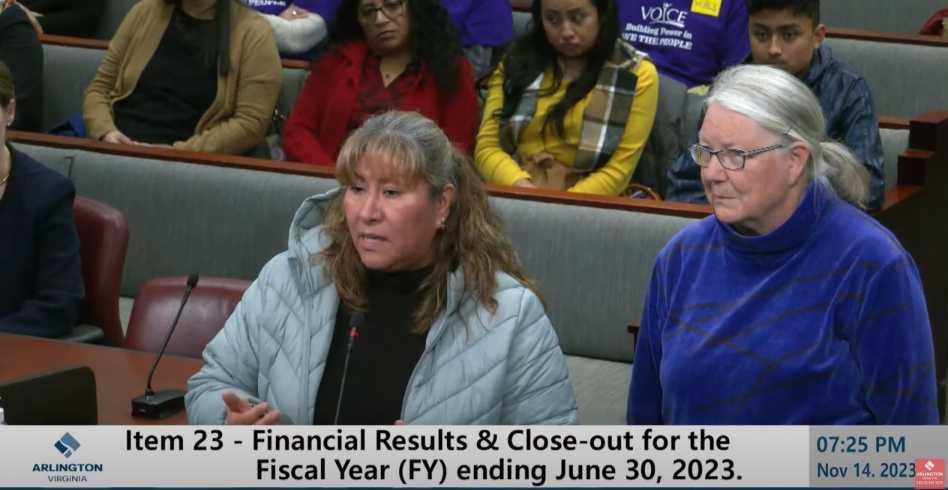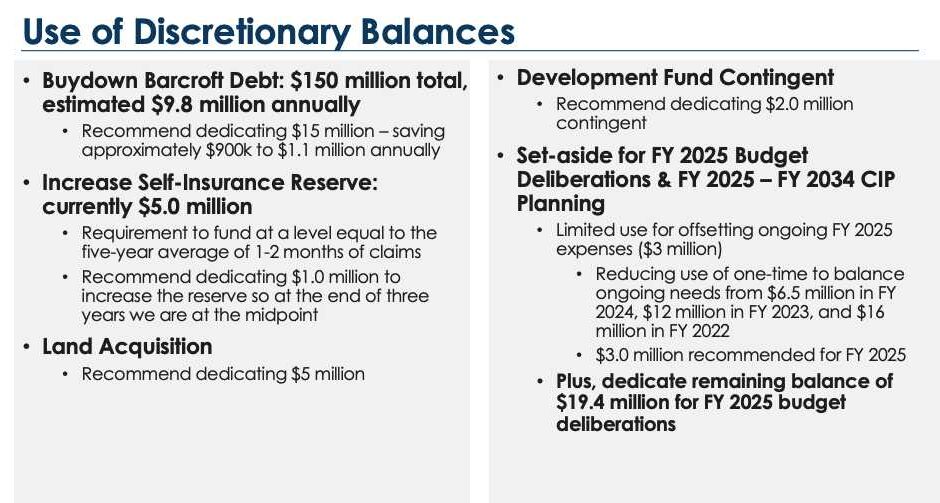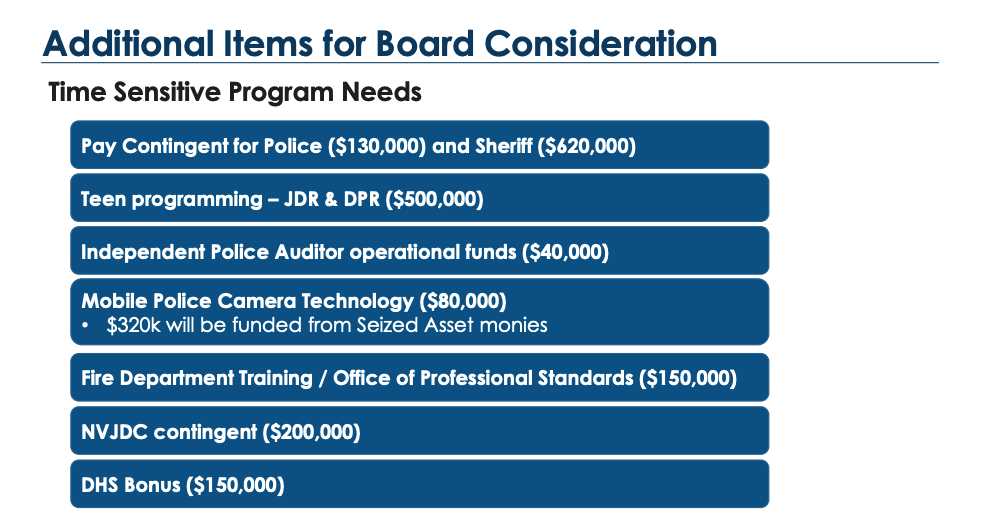
Arlington County is doling out leftover funds from the 2024 fiscal year toward tackling youth substance abuse, public safety and behavioral health challenges it is facing.
Those are three of several buckets that will benefit from the $46.3 million in discretionary close-out funds — almost double what the county had to spend after last fiscal year, $26.9 million. The County Board approved County Manager Mark Schwartz’s spending plan last night (Tuesday).
Some of the bigger-ticket line items are as follows:

As for public safety, to combat staffing shortages and small recruit sizes for the Sheriff’s Department and the Police Department, deputy sheriffs would get bonuses and ACPD would get money for hiring bonuses that compete with neighboring jurisdictions.
In response to allegations of years of harassment gone unaddressed, levied by several female Arlington County Fire Department employees, the county proposes funding for an Office of Professional Standards, as well as training while an outside law firm conducts interviews about the allegations.
The Dept. of Human Services will get $150,000 for bonuses for hard-to-hire positions. For instance, it has had a hard time finding someone to handle jail diversion programs for adults with serious mental illnesses.
The jail would get an independent medical staff member, as requested by Sheriff Jose Quiroz. Schwartz said the medical staffer would be an independent voice when there are disagreements between state or local clinicians and the jail-based, private medical provider, Mediko.
Sources have previously told ARLnow that the contractor and other jail-based clinicians have disagreed over appropriate drug treatments for inmates, for instance.

Most discussion centered around $500,000, increased to $750,000, to augment existing teen resources and programs the county, Arlington Public Schools and community partners offer. The parks department and the schools, for instance, have long lists of programs but advocates say many are not marketed to or are unaffordable to the very families hit hardest by the drug epidemic.
The extra funding — responding to community advocacy — would fund work to review and tailor these programs to the substance use and mental health issues teens are facing. In putting forward this suggestion, Schwartz was complimentary of how the schools and the county are working together on the issue.
County Board member Takis Karantonis carried a motion 3-2 to increase the funding to $750,000 so that these activities can happen in the next six months if needed, without staff having to draw from resources somewhere else.
Arlington County Board Chair Christian Dorsey and Vice-Chair Libby Garvey dissented.
“I hate how that could be misinterpreted as not desiring to spend more money on this initiative. It’s not that at all,” Dorsey said of his vote. He noted the extra $250,000 is not earmarked for something specific and that this effort has generated a lot of ideas but no specific plan, yet, deeming the increase “more symbolic than substantive.”
Board member Matt de Ferranti observed there was more scrutiny of this $500,000 allocation than the $5 million allocated for land acquisition. He carried a motion 4-1 to cut land acquisition funding in half to $2.5 million.
“The standard of review of the land acquisition and the standard of review of this much smaller amount of money don’t seem to live with the equity lens I think I should be having with respect to this,” he said.
Arlington NAACP branch President Michael Hemminger said he was disappointed in the split vote on the teen program funding.
“Historically disadvantaged communities are in crisis and need all the help our community can offer. This should have been an easy vote,” he said.
Several public speakers supported the allocation.
“We have lost two precious children to overdoses and more have barely escaped death. That’s two too many funerals,” said Cynthia Cuttier, a parent with Arlington Schools Hispanic Parents Association. “Help create a better future for our children with expanded after-school programs… Our children are our future, they are worth it.”
Speaking in Spanish, Maritza Orihuela said nothing came of her request to the School Board last year for more options. She urged the County Board to make sure these programs are free, noting many families can hardly pay rent, let alone pay for an after-school program.
Getting to this point has taken two years of advocacy, says ASHPA leader Janeth Valenzuela. Parents began working with state legislators on ways to prevent vape shops near middle schools in 2022, the same year parents sounded the alarm on drug use.
This January, Wakefield High School student Sergio Flores died of an overdose, prompting a request from ASHPA for more after-school programs. Other local school and community organizations joined the push, re-upping their concerns when another Wakefield student died in what several presume was an overdose this fall.
“Parents are asking for quality programs to be created in the schools, focusing on rescuing our children from clutches of this poison,” Valenzuela said.

